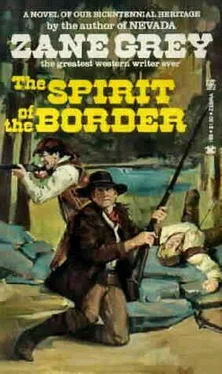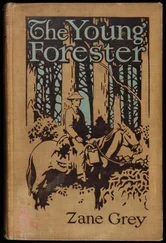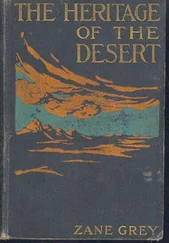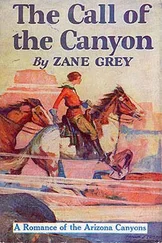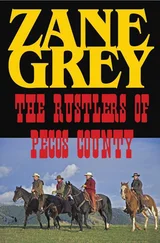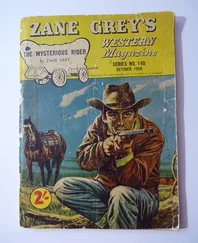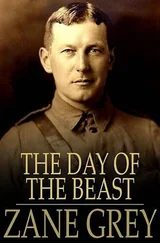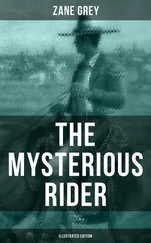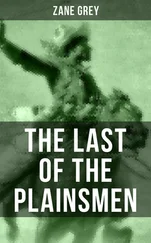"Indian, we can go no further to-night, we must rest," cried Jim, as Nell stumbled against him, and Mr. Wells panted wearily in the rear.
"Rest soon," replied the chief, and kept on.
Darkness had settled down when Wingenund at last halted. The fugitives could see little in the gloom, but they heard the music of running water, and felt soft moss beneath their feet.
They sank wearily down upon a projecting stone. The moss was restful to their tired limbs. Opening the pack they found food with which to satisfy the demands of hunger. Then, close under the stone, the fugitives sank into slumber while the watchful Indian stood silent and motionless.
Jim thought he had but just closed his eyes when he felt a gentle pressure on his arm.
"Day is here," said the Indian.
Jim opened his eyes to see the bright red sun crimsoning the eastern hills, and streaming gloriously over the colored forests. He raised himself on his elbow to look around. Nell was still asleep. The blanket was tucked close to her chin. Her chestnut hair was tumbled like a schoolgirl's; she looked as fresh and sweet as the morning.
"Nell, Nell, wake up," said Jim, thinking the while how he would love to kiss those white eyelids.
Nell's eyes opened wide; a smile lay deep in their hazel shadows.
"Where a I? Oh, I remember," she cried, sitting up. "Oh, Jim, I had such a sweet dream. I was at home with mother and Kate. Oh, to wake and find it all a dream! I am fleeing for life. But, Jim, we are safe, are we not?"
"Another day, and we'll be safe."
"Let us fly," she cried, leaping up and shaking out her crumpled skirt. "Uncle, come!"
Mr. Wells lay quietly with his mild blue eyes smiling up at her. He neither moved nor spoke.
"Eat, drink," said the chief, opening the pack.
"What a beautiful place," exclaimed Nell, taking the bread and meat handed to her. "This is a lovely little glade. Look at those golden flowers, the red and purple leaves, the brown shining moss, and those lichen-covered stones. Why! Some one has camped here. See the little cave, the screens of plaited ferns, and the stone fireplace."
"It seems to me this dark spring and those gracefully spreading branches are familiar," said Jim.
"Beautiful Spring," interposed Wingenund.
"Yes, I know this place," cried Nell excitedly. "I remember this glade though it was moonlight when I saw it. Here Wetzel rescued me from Girty."
"Nell, you're right," replied Jim. "How strange we should run across this place again."
Strange fate, indeed, which had brought them again to Beautiful Spring! It was destined that the great scenes of their lives were to be enacted in this mossy glade.
"Come, uncle, you are lazy," cried Nell, a touch of her old roguishness making playful her voice.
Mr. Wells lay still, and smiled up at them.
"You are not ill?" cried Nell, seeing for the first time how pallid was his face.
"Dear Nellie, I am not ill. I do not suffer, but I am dying," he answered, again with that strange, sweet smile.
"Oh-h-h!" breathed Nell, falling on her knees.
"No, no, Mr. Wells, you are only weak; you will be all right again soon," cried Jim.
"Jim, Nellie, I have known all night. I have lain here wakeful. My heart never was strong. It gave out yesterday, and now it is slowly growing weaker. Put your hand on my breast. Feel. Ah! you see! My life is flickering. God's will be done. I am content. My work is finished. My only regret is that I brought you out to this terrible borderland. But I did not know. If only I could see you safe from the peril of this wilderness, at home, happy, married."
Nell bent over him blinded by her tears, unable to see or speak, crushed by this last overwhelming blow. Jim sat on the other side of the old missionary, holding his hand. For many moments neither spoke. They glanced at the pale face, watching with eager, wistful eyes for a smile, or listening for a word.
"Come," said the Indian.
Nell silently pointed toward her uncle.
"He is dying," whispered Jim to the Indian.
"Go, leave me," murmured Mr. Wells. "You are still in danger."
"We'll not leave you," cried Jim.
"No, no, no," sobbed Nell, bending over to kiss him.
"Nellie, may I marry you to Jim?" whispered Mr. Wells into her ear. "He has told me how it is with him. He loves you, Nellie. I'd die happier knowing I'd left you with him."
Even at that moment, with her heart almost breaking, Nell's fair face flushed.
"Nell, will you marry me?" asked Jim, softly. Low though it was, he had heard Mr. Wells' whisper.
Nell stretched a little trembling hand over her uncle to Jim, who inclosed it in his own. Her eyes met his. Through her tears shone faintly a light, which, but for the agony that made it dim, would have beamed radiant.
"Find the place," said Mr. Wells, handing Jim a Bible. It was the one he always carried in his pocket.
With trembling hand Jim turned the leaves. At last he found the lines, and handed the book back to the old man.
Simple, sweet and sad was that marriage service. Nell and Jim knelt with hands clasped over Mr. Wells. The old missionary's voice was faint; Nell's responses were low, and Jim answered with deep and tender feeling. Beside them stood Wingenund, a dark, magnificent figure.
"There! May God bless you!" murmured Mr. Wells, with a happy smile, closing the Bible.
"Nell, my wife!" whispered Jim, kissing her hand.
"Come!" broke in Wingenund's voice, deep, strong, like that of a bell.
Not one of them had observed the chief as he stood erect, motionless, poised like a stag scenting the air. His dark eyes seemed to pierce the purple-golden forest, his keen ear seemed to drink in the singing of the birds and the gentle rustling of leaves. Native to these haunts as were the wild creatures, they were no quicker than the Indian to feel the approach of foes. The breeze had borne faint, suspicious sounds.
"Keep–the–Bible," said Mr. Wells, "remember–its–word." His hand closely clasped Nell's, and then suddenly loosened. His pallid face was lighted by a meaning, tender smile which slowly faded–faded, and was gone. The venerable head fell back. The old missionary was dead.
Nell kissed the pale, cold brow, and then rose, half dazed and shuddering. Jim was vainly trying to close the dead man's eyes. She could no longer look. On rising she found herself near the Indian chief. He took her fingers in his great hand, and held them with a strong, warm pressure. Strangely thrilled, she looked up at Wingenund. His somber eyes, fixed piercingly on the forest, and his dark stern face, were, as always, inscrutable. No compassion shone there; no emotion unbefitting a chieftain would ever find expression in that cold face, but Nell felt a certain tenderness in this Indian, a response in his great heart. Felt it so surely, so powerfully that she leaned her head against him. She knew he was her friend.
"Come," said the chief once more. He gently put Nell aside before Jim arose from his sad task.
"We can not leave him unburied," expostulated Jim.
Wingenund dragged aside a large stone which formed one wall of the cavern. Then he grasped a log which was half covered by dirt, and, exerting his great strength, pulled it from its place. There was a crash, a rumble, the jar of a heavy weight striking the earth, then the rattling of gravel, and, before Nell and Jim realized what had happened, the great rock forming the roof of the cavern slipped down the bank followed by a small avalanche. the cavern was completely covered. Mr. Wells was buried. A mossy stone marked the old missionary's grave.
Nell and Jim were lost in wonder and awe.
"Ugh!" cried the chief, looking toward the opening in the glade.
Fearfully Nell and Jim turned, to be appalled by four naked, painted savages standing with leveled rifles. Behind them stood Deering and Jim Girty.
Читать дальше
